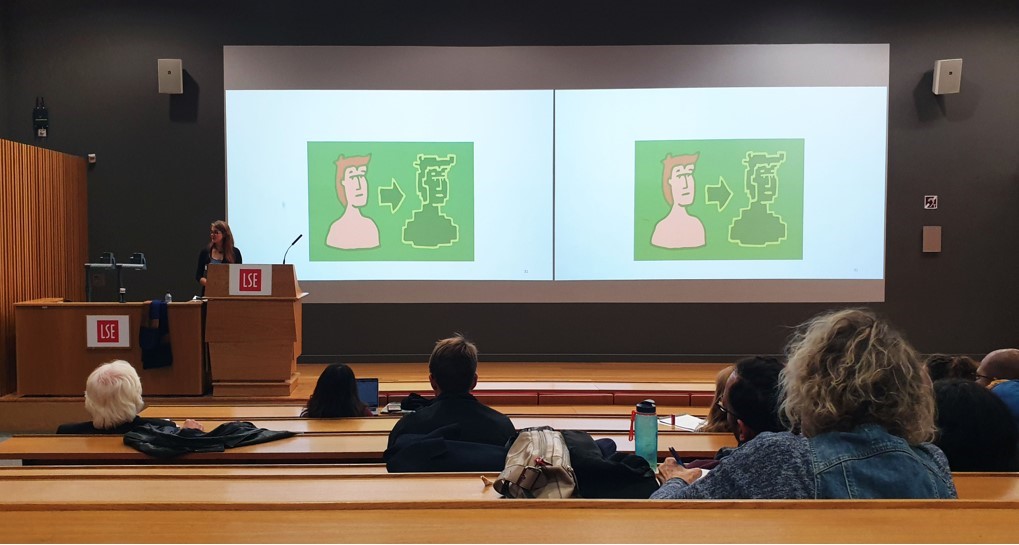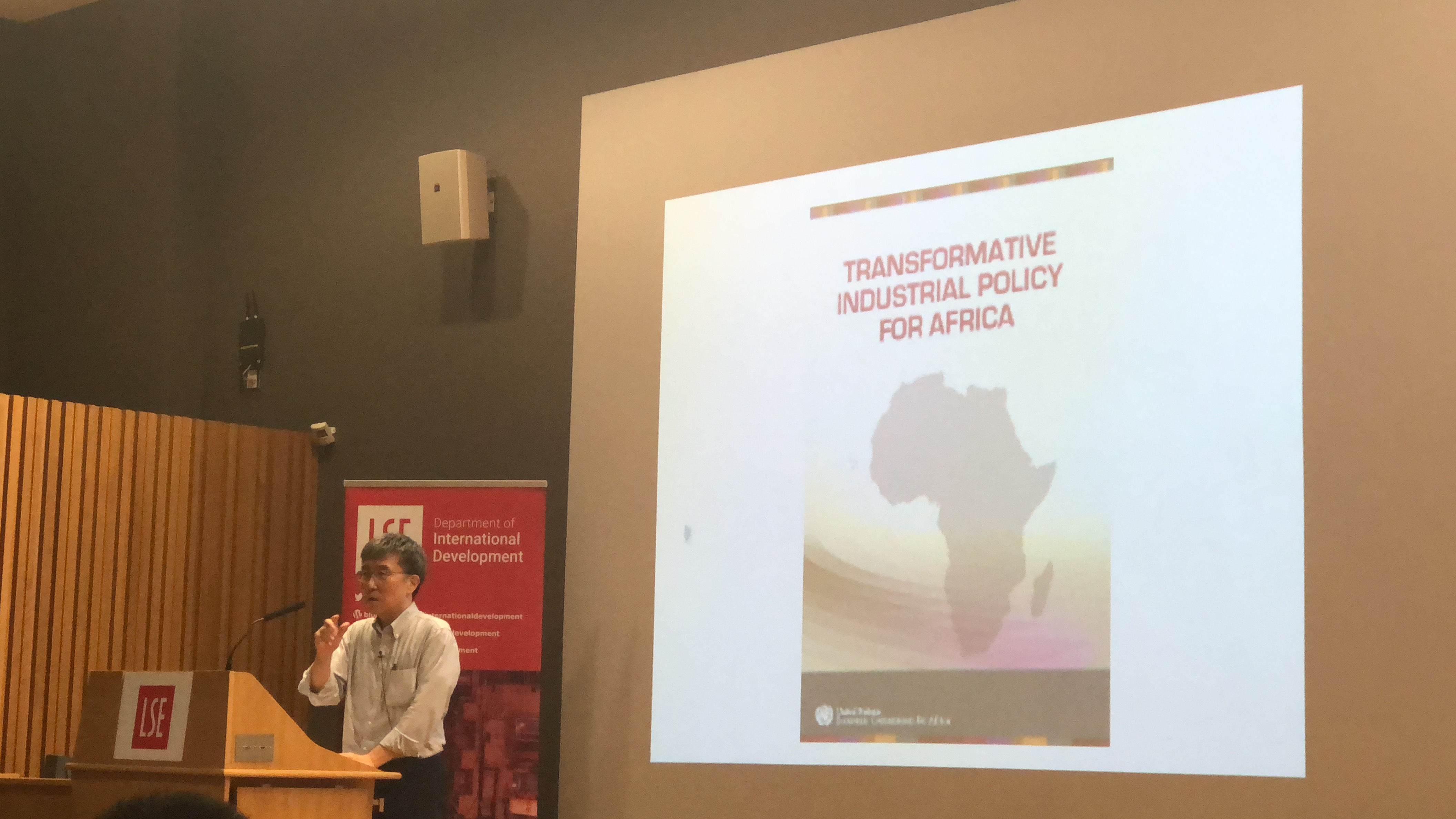MSc Development Studies student, Anastasia Putri, covered the recent guest lecture from Pallavi Roy, Lecturer in International Economics, as part of our weekly International Development Department’s Cutting Edge Issues in Development Thinking and Practice lecture series. Anastasia gives her reflections on the lecture and tells us what she took away from the event.

As identities and privacy on social media become exceedingly pressing issues at present, Dr. Pallavi Roy’s lecture undertakes the issue of digital identity at a different and noteworthy junction: national digital identities, inclusion, what one could potentially argue as cases of exploitation, and power.
Dr. Roy’s lecture initially guides us through a series of foundational questions about identity, each one important to understand the next. First, she discusses identity as a concept. Then, she explores the meaning of having unique digital identifiers as citizens of a nation. She shows that digital identities are recorded online, but are also materialized offline in the form of a card – at least in the cases of Kenya and India.
She elucidates possible reasons for the state in obliging citizens this unique digital identifier. An often-cited one is data collection; each citizens’ personal data add to a national database of all citizens to “plug identity gaps.”. Another reason is inclusion towards public services and goods, including for the provision of health and educational services. She reveals the Nigerian case where, conversely, there has not been a census since 2006 as the state simply “does not want to know”; thus, dissolving responsibility for the Nigerian state to supply necessary services for (most) of the public. Here, she starts to hint at the political motive behind the pursuit of perfect data – or lack thereof.
Her lecture takes a nuanced turn as she problematizes this idea of inclusion via the collection of digital identities.
Drawing from the case studies in Kenya (Huduma Namba) and India (Aadhaar card), she shows the mixed evidence that while these digital identities “have reduced corruption and improved service delivery in some areas”, they also can be and have been used towards the “economic and political exclusion” of citizens. The phenomenon is called “function creep.” Despite what seems like an inclusionary policy to the public at first, outcomes can be exclusionary and worse, exploitative towards citizens.
In Kenya, citizens have to choose between legal erasure and data commodification. In India, while the Aadhaar card can be used as a measure against illegal immigration, it also poses many privacy and security leaks leading to abuses of the data. Dr. Roy highlights a personal experience where a data collector, presumably an employee of the Indian government consultant, came to her house unannounced to take her photo and collect her biometrics. She problematizes how this, as an extension of power and information asymmetry issue in the Indian citizen data collection, is somehow normalized.
The potential and history of exploitative use of data are a couple of the main reasons many “developed nations” have done away with developing any digital national identity and data collection overall.
Dr. Roy portends that the reason behind misuses of digital identities by the state is strongly tied to power asymmetries in developing nations as a result of a “rule by law” system; this is when the distribution of power does not sustain the rule of law and detections of violations will not always lead to enforcement. In short, it is easy to create information asymmetry to benefit the powerful in “rule by law” societies. Located at the opposite end of the spectrum is a “rule of law” system where detections of violations lead to enforcement regardless of the relative power of the violator. Many, if not all, developed nations are under the “rule of law.”
To further complicate the picture, she explains that the private sector exacerbates the power asymmetry in these “rule by law” countries by partnering with the state on data collection projects. In the end, the information asymmetries get reproduced and sustained via these thinly regulated partnerships.
Upon closing, Dr. Roy recommends that the collection of digital identities need to be further regulated by creating more robust legal structures around public-private partnerships on digital identity collection. Furthermore, the data’s decentralization is crucial in providing informal “checks and balances” system to avoid misusage and protect the citizens from any unwanted exclusionary policy outcomes. Despite the high costs, this all amounts to data protection for citizens in the future to come.
Dr. Roy’s lecture invites us to revisit the permissions we give to the state in collecting our data and to be more vigilant about sharing our digital identities in the contemporary world, even to entities we’d like to believe is protecting us, such as the state. Her lecture gives way to new investigations of the digital accountabilities of developing nations within the light of our capitalist world, where nothing comes for free – including our digital identities.
Don’t forget to join us next Friday for our fifth Cutting Edge Issues in Development Thinking and Practice lecture with guest speaker Rafeef Ziadah who will give a talk on “Palestine Decolonisation and de-development”. Friday 15 November, 4-6pm in the Sheikh Zayed Theatre. External guests please register via: https://bit.ly/2kvbH69.
Anastasia Putri is an MSc Development Studies student from Indonesia with a Bachelor’s degree in Anthropology and Theater Arts (Dance) from Dickinson College, United States. Her research interests include Indonesia, the informal sector, urban development, as well as bridging communities and inequalities.
The views expressed in this post are those of the author and in no way reflect those of the International Development LSE blog or the London School of Economics and Political Science.





